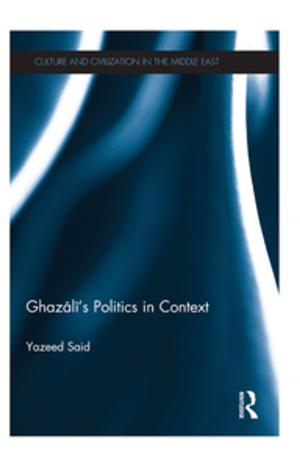The Trilateral Commission and Global Governance
Informal Elite Diplomacy, 1972-82
Nonfiction, Social & Cultural Studies, Political Science, International, International Relations, History, Modern, 20th Century| Author: | Dino Knudsen | ISBN: | 9781317392064 |
| Publisher: | Taylor and Francis | Publication: | May 12, 2016 |
| Imprint: | Routledge | Language: | English |
| Author: | Dino Knudsen |
| ISBN: | 9781317392064 |
| Publisher: | Taylor and Francis |
| Publication: | May 12, 2016 |
| Imprint: | Routledge |
| Language: | English |
This book provides the first analysis of the Trilateral Commission and its role in global governance and contemporary diplomacy.
In 1973, David Rockefeller and Zbigniew Brzezinski founded the Trilateral Commission. Involving highly influential people from business and politics in the US, Western Europe, and Japan, the Commission was soon preceived as constituting an embryonic or even shadow world government. As the first researcher to have accessed the Commission’s archives, the author argues that this study demonstrates that global governance and international diplomacy should be considered a product of overlapping elite networks that merge informal and formal spheres across national borders. This work has three immediate aims: to trace the background, origins, purposes, characteristics, and modus operandi of the Commission; to investigate the elite aspect of the Commission and how this related to democracy; and to demonstrate how the Commission contributed to diplomatic practices and policy-formulation at national and international levels. The overall purpose of this book is to evaluate the significance of the Trilateral Commission, with particular focus on the implications of its activities on the way we understand decision-making processes and diplomacy in modern, democratic societies.
This book will be of much interest to students of the Cold War, US foreign policy, diplomacy studies, and IR in general
This book provides the first analysis of the Trilateral Commission and its role in global governance and contemporary diplomacy.
In 1973, David Rockefeller and Zbigniew Brzezinski founded the Trilateral Commission. Involving highly influential people from business and politics in the US, Western Europe, and Japan, the Commission was soon preceived as constituting an embryonic or even shadow world government. As the first researcher to have accessed the Commission’s archives, the author argues that this study demonstrates that global governance and international diplomacy should be considered a product of overlapping elite networks that merge informal and formal spheres across national borders. This work has three immediate aims: to trace the background, origins, purposes, characteristics, and modus operandi of the Commission; to investigate the elite aspect of the Commission and how this related to democracy; and to demonstrate how the Commission contributed to diplomatic practices and policy-formulation at national and international levels. The overall purpose of this book is to evaluate the significance of the Trilateral Commission, with particular focus on the implications of its activities on the way we understand decision-making processes and diplomacy in modern, democratic societies.
This book will be of much interest to students of the Cold War, US foreign policy, diplomacy studies, and IR in general















